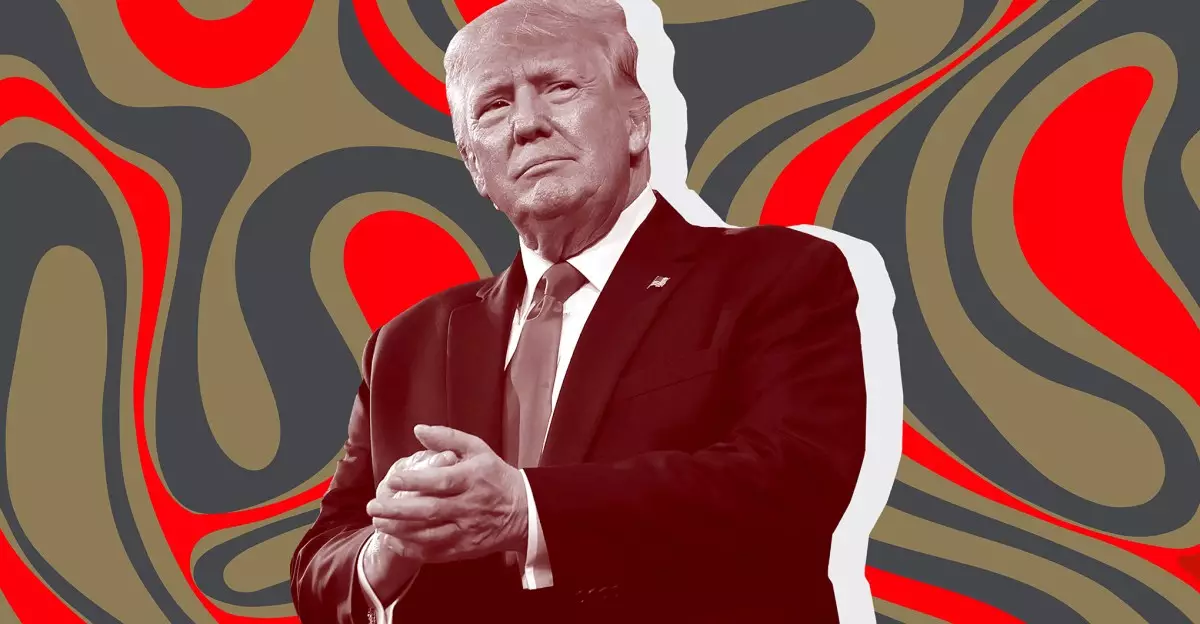In an unprecedented twist within the world of cryptocurrencies, the value of $TRUMP coin skyrocketed by an astonishing $100 million. This surge coincided with the announcement of an exclusive dinner hosted by former President Donald Trump for the top 220 largest holders of this controversial digital asset. Such a spike raises alarm bells not only in financial circles but also among political commentators who question the ethical implications of intertwining personal wealth with high-level political access. The timing of this increase, so closely following the announcement, warrants scrutiny that goes beyond mere market speculation.
Direct Access to Power
The dinner, designed as a reward for substantial supporters of the $TRUMP coin, also comes with the tantalizing offering of a VIP experience, which includes a private audience with Trump and a guided tour of the White House. This structure of rewards sends clear signals: significant financial investment in the coin translates directly into access to political power. The promotional material on the coin’s homepage encourages holders to accumulate wealth and maintain their investment for a chance at elevated recognition. Such a system blurs the lines between legitimate investment and a potential “pay-to-play” scheme, raising ethical questions about whether access to presidential power should be auctioned off in this manner.
Public Outcry and Political Repercussions
Democratic senators have robustly condemned this venture as one of the “most brazenly corrupt things” witnessed in modern political history. The outrage is not merely a partisan reaction; it taps into broader fears regarding the erosion of trust in governmental institutions. Senator Chris Murphy’s public denouncement reflects a sentiment that many Americans may share: a growing unease about political figures profiting through their stations in ways that appear to commodify democracy itself. The growing demands for an investigation into Trump’s actions demonstrate the serious implications of this situation.
Furthermore, Senators Elizabeth Warren and Adam Schiff have formally requested that the U.S. Office of Ethics conduct an inquiry into these matters. Their concerns underscore a pivotal issue in today’s political landscape: the mixing of financial gain and political influence. Close observers point out that the nature of this contest and its implications could position Trump as a figure who profits not only from the coin itself but from the strategic financial loyalty of those who hold it.
The Crypto Connection
Trump’s affinity for the cryptocurrency landscape is profound and multi-faceted. Over his administration and into his ongoing political endeavors, he has cultivated relationships within the crypto community and has appointed officials like David Sacks to help guide his policies. His administration eliminated regulatory frameworks that would typically prosecute fraud within the cryptocurrency sphere, which has led many to contemplate the financial motives driving such actions. The symbiotic relationship between Trump and crypto companies raises the question: is there an inherent conflict of interest when political favor melds with financial support?
The ramifications spill beyond mere ethics; they touch on the viability and future of cryptocurrency investments. As creditors and investors weigh their contributions, should they consider the potential volatility that comes with political endorsements? The cryptocurrency market’s unpredictability can often leave investors uncertain, particularly when external factors, such as political maneuvers, can rapidly sway market stability.
The Role of Governance and Responsibility
As debates continue in Congress regarding the ethics and responsibilities of public officials in relation to cryptocurrencies, it is evident that this situation demands a more granular examination of governance in the context of newer financial technologies. The capacity for public officials to leverage their positions for personal or familial gain presents a clear challenge to democratic norms. The questions needing to be raised extend far beyond whether the $TRUMP coin should be investigated; they touch on the foundations of accountability within political frameworks and the broader implications for accountability within digital economies.
This scenario serves as a stark reminder of how potentially unrestrained power can intertwine with rapidly advancing financial technologies, necessitating a discourse centered on ethics, responsibility, and the appropriate boundaries for citizens and politicians alike in an evolving landscape. Moving forward, it is imperative to establish foundational guidelines that protect against abuses of power cloaked in the guise of financial innovation.

